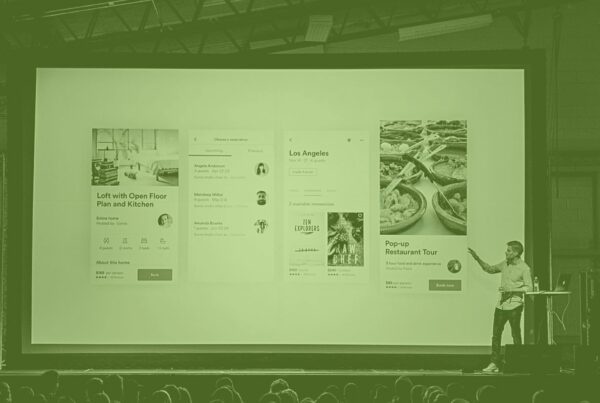Want to see the 2016 event trends? Read our predictions for the 2016 event trends!
Each year the experts break out the crystal ball and predict what will be new and innovative event trends in the upcoming year. The meeting and event industry is especially exciting. The rate at which technology changes, and event trends develop is staggering. In general, some new developments will help planners plan better, be more creative and engage attendees more. Other developments will help venues and other stakeholders. In this post, I’m addressing a handful of predictions that stand out.
EVENTS AS COMMUNITIES
Events are no longer a two or three-day project, but create a community that starts before the event begins and continues indefinitely after. Planners must think about a much longer lifecycle of their events than ever before. More are using technology to extend that lifecycle. The biggest barrier to the emergence of these connected communities is that planners may not have time to manage these communities as they are moving on to planning the next event. As this event trend develops, planners will have to incorporate strategies to manage these communities.
LOCAL FARM TO TABLE & FOOD AS DECOR
A trend that started a few years ago keeps evolving and is now fully incorporated at most venues. Food that is locally sourced, the farm to table style trend has become a mainstay and is not going anywhere soon. Event décor too has become more sustainable in which consumable foods and beverage are cleverly incorporated as décor into the event. Same counts for food trucks. I have attended more events this year that featured food trucks for catering than ever before. The trucks not only serve delicious food, they become instant décor for the event.
EVENT MOBILE APPS
Mobile event apps are becoming more popular. There are countless vendors providing apps with more events implementing the apps. However, the challenge for planners is to ensure that attendees download the event app. Now, about 60% of attendees download the apps, and only about 10% of people who download use the app. There is still ways to go to ensure universal adoption at events and meetings. Planners must ensure that the event app meets the needs of the attendees, is easy to use and provides a measurable return on investment.
END-TO-END MEETINGS MANAGEMENT
We will see the emergence of end-to-end meeting planning tools that allow planners to manage all aspects of their event from one platform versus a fragmented set of tools. Eventinterface is a great example of a tool that allows planners to manage all aspects of the planning process, from the registration process to the management of the event community all while increasing efficiencies and mitigating overall technology spend.
GOING BEYOND THE VENUE
As budgets have turned around and hotels are back to charging premium rates, more planners will be seeking out alternative venues for events. Most communities have empty warehouses, hangars; blank canvasses with perhaps with fewer limitations than a traditional venue. There are zoos, parks, restaurants, rooftops, parking garage structures, all great locations for events, many with build in décor.
I believe there will also be more local and regional events vs. national and international events. As travel cost and headaches related to travel have risen, and venue cost has been rising also, I predict that more planners will opt to look a bit closer to home for their events and meeting.
BLE AND iBeacons
I predict that these will be implemented more often, especially since they can easily communicate with mobile devices already. They provide a wealth of opportunity for planner and participants. Planners can track where attendees go, where they spend time, sessions they attend. The technology can also open up access to content when entering a specific room at a venue. The uses are endless and the technology is relatively cost-effective.
WI-FI EVERYWHERE
With event apps, it is now expected that events and venues offer Wi-Fi throughout the event, in all meeting rooms. It will no longer be acceptable to not have Wi-Fi accessible at events. Hotels and venues are slowly catching up in providing Wi-Fi that can handle the needed bandwidth. Every coffee shop, restaurant, and many retail outlets offer free Wi-Fi to guests and shoppers, venues however have ways to go to fully implementing this.
BIG DATA AND ANALYTICS
Events collect an immense amount of date from registration data to surveys. In the past, survey data was collected post event and analyzed weeks later. Now, with mobile apps and SAAS event technology planners can evaluate data on the spot and pivot where needed immediately. Planners will be able to more easily evaluate attendee behaviors, patterns and feedback as they implement technologies.









